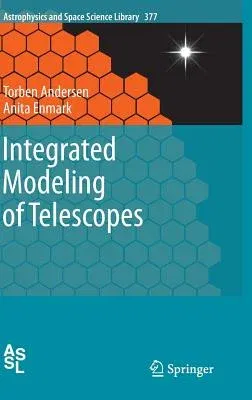Ground- or space-based telescopes are becoming increasingly more complex
and construction budgets are typically in the billion dollar range.
Facing costs of this magnitude, availability of engineering tools for
prediction of performance and design optimization is imperative.
Establishment of simulation models combining different technical
disciplines such as Structural Dynamics, Control Engineering, Optics and
Thermal Engineering is indispensable. Such models are normally called
Integrated Models because they involve many different disciplines. The
models will play an increasingly larger role for design of future
interdisciplinary optical systems in space or on ground. The book
concentrates on integrated modeling of optical and radio telescopes but
the techniques presented will be applicable to a large variety of
systems. Hence, the book will be of interest to optical and radio
telescope designers, designers of spacecrafts that include optical
systems, and to designers of various complex defense systems. The book
may also find use as a textbook for undergraduate and graduate courses
within the field. "Adaptive Optics" is an exciting and relatively new
field, originally dedicated to correction for blurring when imaging
through the atmosphere. Although this objective is still of high
importance, the concept of Adaptive Optics has recently evolved further.
Today, the objective is not only to correct for atmospheric turbulence
effects but also for a range of static and dynamical telescope
aberrations. The notion of adaptive optics has expanded to the field of
"Wavefront Control", correcting for a variety of system aberrations.
Wavefront control systems maintain form and position of optical elements
with high precision under static and dynamical load. In many ways, such
systems replace the steel structures of traditional optical systems,
thereby providing much lighter systems with a performance not possible
before. Integrated Modeling is the foremost tool for studies of
Wavefront Control for telescopes and complex optics and is therefore now
of high importance. Springer has recently published two books on
telescopes, "Reflecting Telescope Optics" by R. Wilson, and "The Design
and Construction of Large Optical Telescopes" by P. Bely. Noting that a
new (and expensive) generation of Extremely Large Telescopes with
apertures in the 30-100 m range is on the way, the present book on
integrated modeling is a good match to the existing books and an
appropriate specialization and continuation of some subjects dealt with
in those books.

